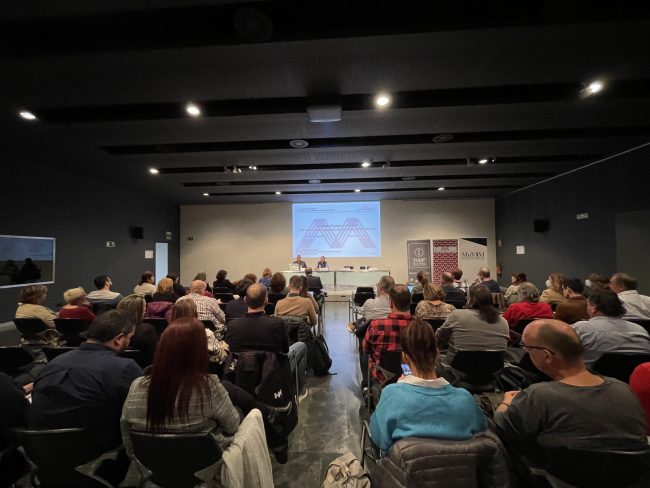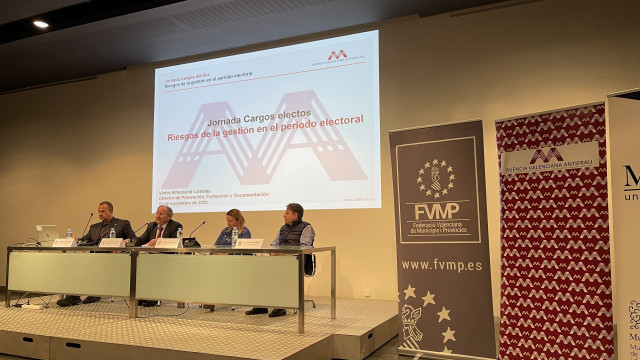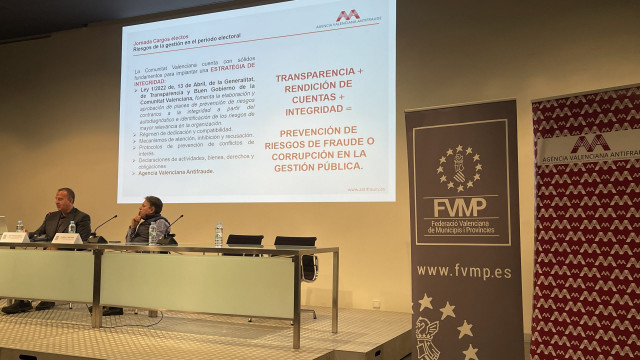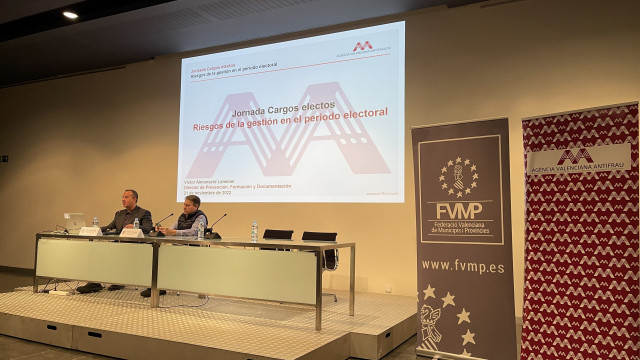#TrainingAVAF
The Valencian Anti-Fraud Agency (AVAF) and the Valencian Federation of Municipalities and Province (FVMP) have held the conference “Management risks in the electoral period” aimed at elected officials at the MUVIM headquarters.
The training session was inaugurated by Tatiana Prades, Deputy Secretary General of the FVMP and Joan Llinares, Director of the Valencian Anti-Fraud Agency.
The main conference of the day “Municipal public management in the electoral period. Main risks.” It was given by Víctor Almonacid, director of Prevention, Training and Documentation of the AVAF.
Throughout the session, the speaker has shown that the key is to identify risks in municipal management and the first step in detecting these is to be aware of them. The recommendation “Catalogue of common risks in decision-making processes and some prevention mechanisms” details them and specifies prevention mechanisms for the risks warned.
The Director of Prevention, Training and Documentation of the Agency stressed that institutional integrity is articulated as a counterweight to risks and made it clear that the Valencian Community has solid foundations to implement an integrity strategy.
Law 1/2022 of April 13 of the Generalitat of Transparency and Good Governance of the Valencian Community allows establishing solid foundations to implement an “Integrity Strategy”:
- The promotion of the preparation and approval of risk prevention plans contrary to integrity based on self-diagnosis and identification of the most relevant risks in the organization.
- Dedication and compatibility regime
- Mechanisms of intention inhibition and recusal.
- Protocols for the prevention of conflicts of interest
- Declarations of activities, assets, rights and obligations.
- Valencian Antifraud Agency.
Some of the most obvious risks for elected officials are related to Law 12/2018 on institutional advertising since the law prohibits, among other issues:
- The party institutional advertising communication
- The public acts of handing over the keys to make real estate by elected officials that will be carried out by the competent official personnel and without public staging.
- The acts of laying the first stones or inauguration of the start of construction of works financed, totally or partially, with public funds by people with elected or high positions.
During the electoral period, the Institutional Advertising Law details that you can carry out institutional campaigns aimed at informing citizens about the voting: date, requirements, but it is prohibited
- Acts of inauguration of public works or services or their projects, whatever the denomination used, without prejudice to the fact that said works or services may come into operation in said period, nothing prevents said works or services from coming into operation in said period.
- Acts that contain allusions to the achievements obtained, financed directly or indirectly, by the powers, or that use images similar to those used in campaigns by the political entities concurrent to the elections.
- Acts that contain allusions to the achievements obtained, financed directly or indirectly, by the powers, or that use images similar to those used in campaigns by the political entities concurrent to the elections.





